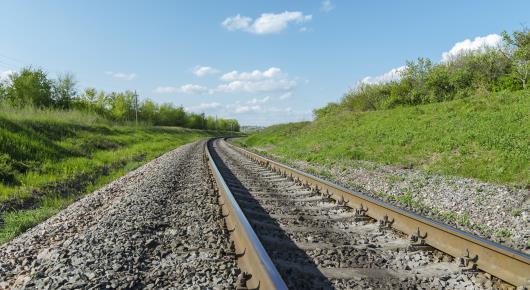Land consolidation can mitigate impacts of Rail Baltica project

Rail Baltica, the largest infrastructure project of the century in the Baltic region, plans to integrate the Baltic States with the European rail network. Construction is scheduled to begin in 2019. Crossing through farmlands, the project challenges rural livelihoods and puts the competitive agriculture of the Baltics at risk.
Organized by FAO and the Estonian University of Life Sciences in Estonia, a three-day LANDNET workshop is opening today in Tallinn, bringing more than 125 experts, public officials, and representatives of civil society and academia from 30 European countries to debate proper land consolidation steps regarding this situation. The workshop is co-financed by the German Corporation for International Cooperation (GIZ) and the Estonian Center of Eastern Partnership.
The Tallin conference is a continuation of the LANDNET workshop held this summer in Skopje, where professionals identified regional best practices and developed generic guidance on the drafting of land consolidation legislation.
“At the present LANDNET workshop, we aim to map out a strategy to implement land consolidation in connection with large-scale infrastructure projects such as Rail Baltica,” said Morten Hartvigsen, FAO land tenure officer.
When complete, the Rail Baltica megaproject will pass through at least part of the lands of five European Union countries – Estonia, Latvia, Lithuania, Poland, and Finland.
“Construction of new rail- and motorways cuts through farms and agricultural areas, resulting in small fragmented fields,” Hartvigsen said. “Thus, if there are no land consolidation tools in place, farms and farm structures are severely damaged.”
“Construction of new rail- and motorways cuts through farms and agricultural areas, (…) if there are no land consolidation tools in place, farms and farm structures are severely damaged.”
Morten Hartvigsen
FAO land tenure officer
Land consolidation offers win-win solutions for both the farmers and the government. Farmers are compensated with new agricultural land instead of money, and they can merge their fragmented parcels, benefiting from a consolidation scheme that results in fewer parcels. Thus, the damage from the infrastructure project is mitigated, and parcels are better shaped, which allows better farming techniques. Benefits to society include more competitive agriculture, increased traffic safety, and reduced emission of greenhouse gasses from agricultural production.
“As a rule, land consolidation projects lead to improved tenure structures that support sustainable and long-term rural development,” Hartvigsen added. “To achieve this, farmers are provided with practical and needed solutions to the problems they face.”
Land consolidation has a long tradition in Europe. In many Western European countries, it is applied in connection with construction of large-scale infrastructure. In Central and Eastern Europe, FAO has in the past 15 years led the introduction of land consolidation instruments and supported member countries in building up operational national land consolidation programmes. When land consolidation is introduced, the focus typically is on agricultural development. However, it is highly recommended that the instrument is used also in connection with public-initiated projects related to large-scale infrastructure, nature restoration and protection, climate change mitigation and adaptation, and other areas.
Further topics of this week’s workshop include the exploration and demonstration of various digital tools related to land consolidation and governance, a discussion of common interests with international networks on land governance, and progress on the ongoing development of LANDNET. At the final session, participants will elect a new LANDNET Board for the period of 2019–2020.
FAO is working on many related activities in the Europe and Central Asia region. Land consolidation is part of the Regional Initiative to empower smallholders and improve rural livelihoods.
27 November 2018, Tallinn, Estonia
